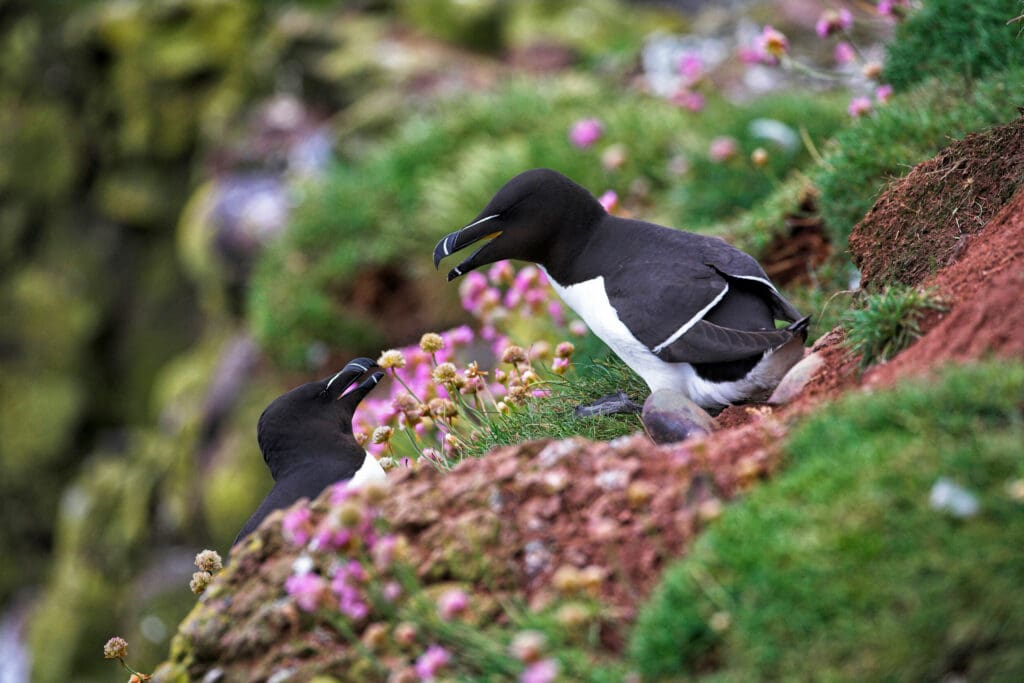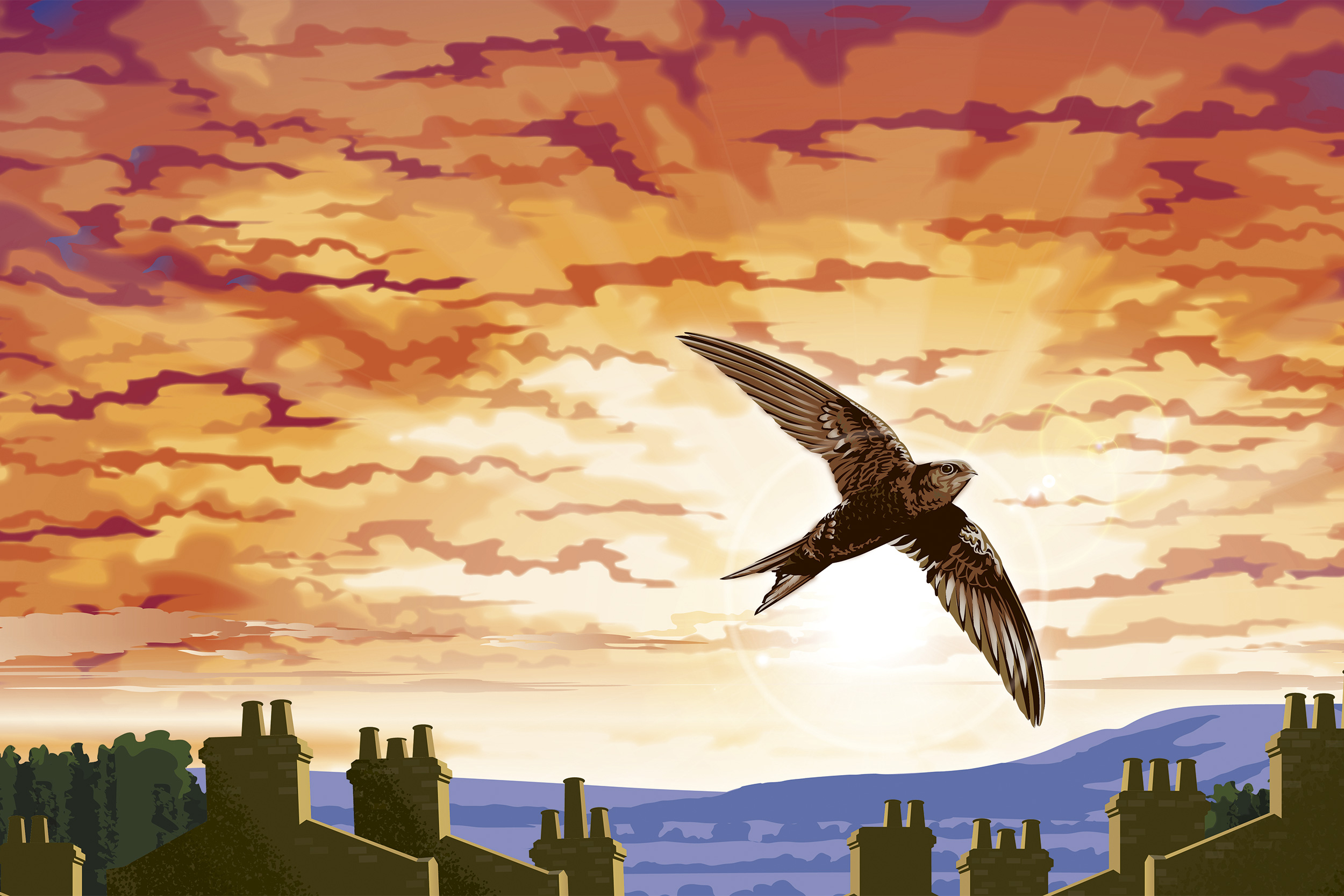Members Thank You Week
When you became an RSPB member, you did something amazing for nature. The more RSPB members, the more funding we have available to save wildlife and wild places.
“As you read through this magazine, remember you are such an important part of these stories,” says Vicki O’Hare, the RSPB’s Head of Membership. “Your support has a real impact.”
We successfully campaigned for the Wildlife Management and Muirburn Bill in Scotland. Corncrakes call on Northern Ireland’s Rathlin Island (pictured) once more. And in remote Tristan da Cunha, the Wilkins’ Bunting now stands a better chance of recovering – all because of members like you!
One thing that all RSPB members have in common is that you’re part of something bigger. By joining together, you’re having a huge impact. Thank you.
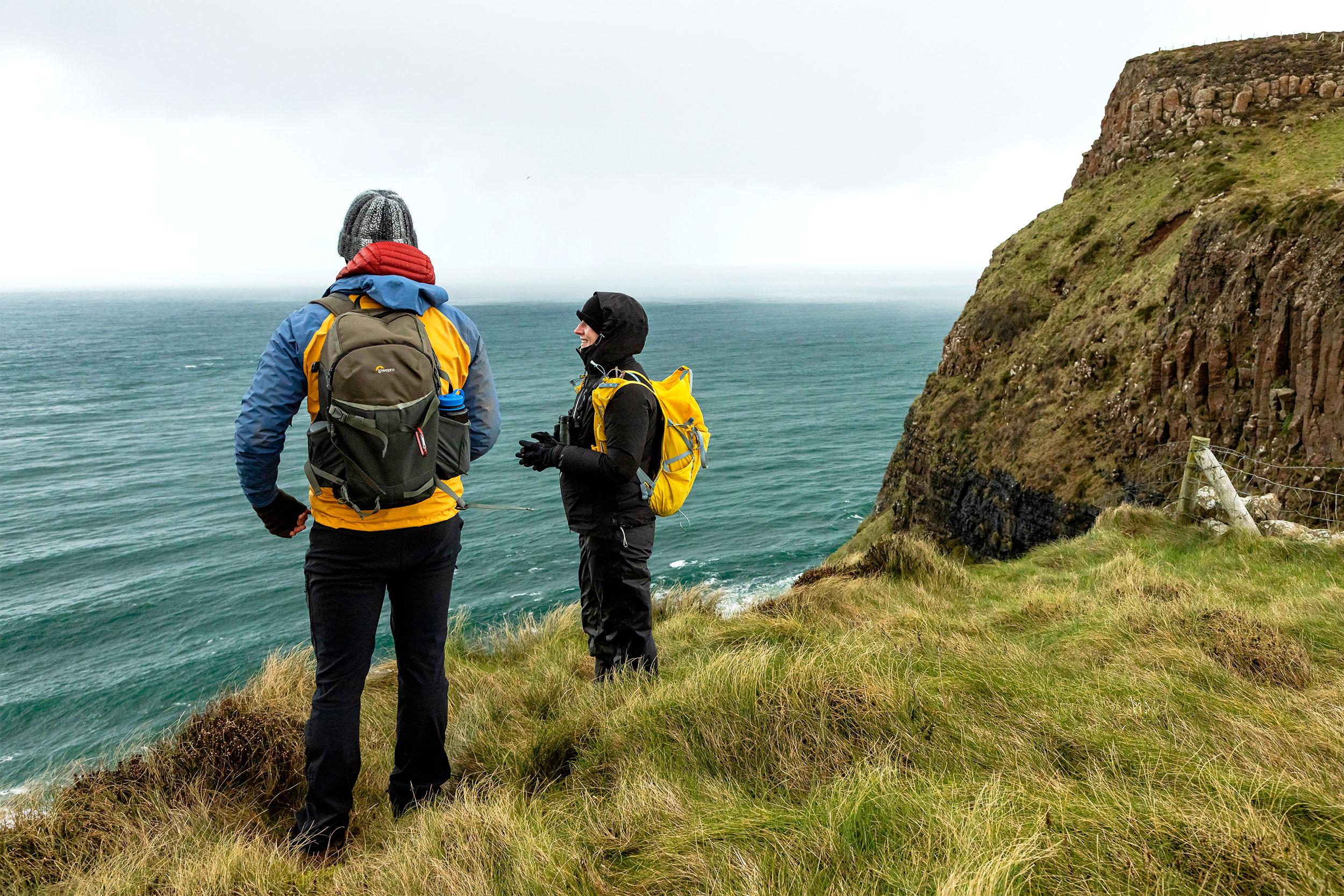
Rathlin Island in Northern Ireland. Photo: Ed Marshall/Wild Images (rspb-images.com)
Scannable membership cards
Car parking is now even easier at 10 of our reserves, thanks to upgraded machines that can scan the QR code on your membership card and quickly issue a free ticket.
The RSPB nature reserves with newly installed machines are: Lochwinnoch, Snettisham, The Lodge, Loch Leven, Marshside, Fairburn Ings, St. Aidan’s, Ham Wall, Middleton Lakes and Freiston Shore.
For more information on why we’re making this change, please review our FAQs on the membership page.
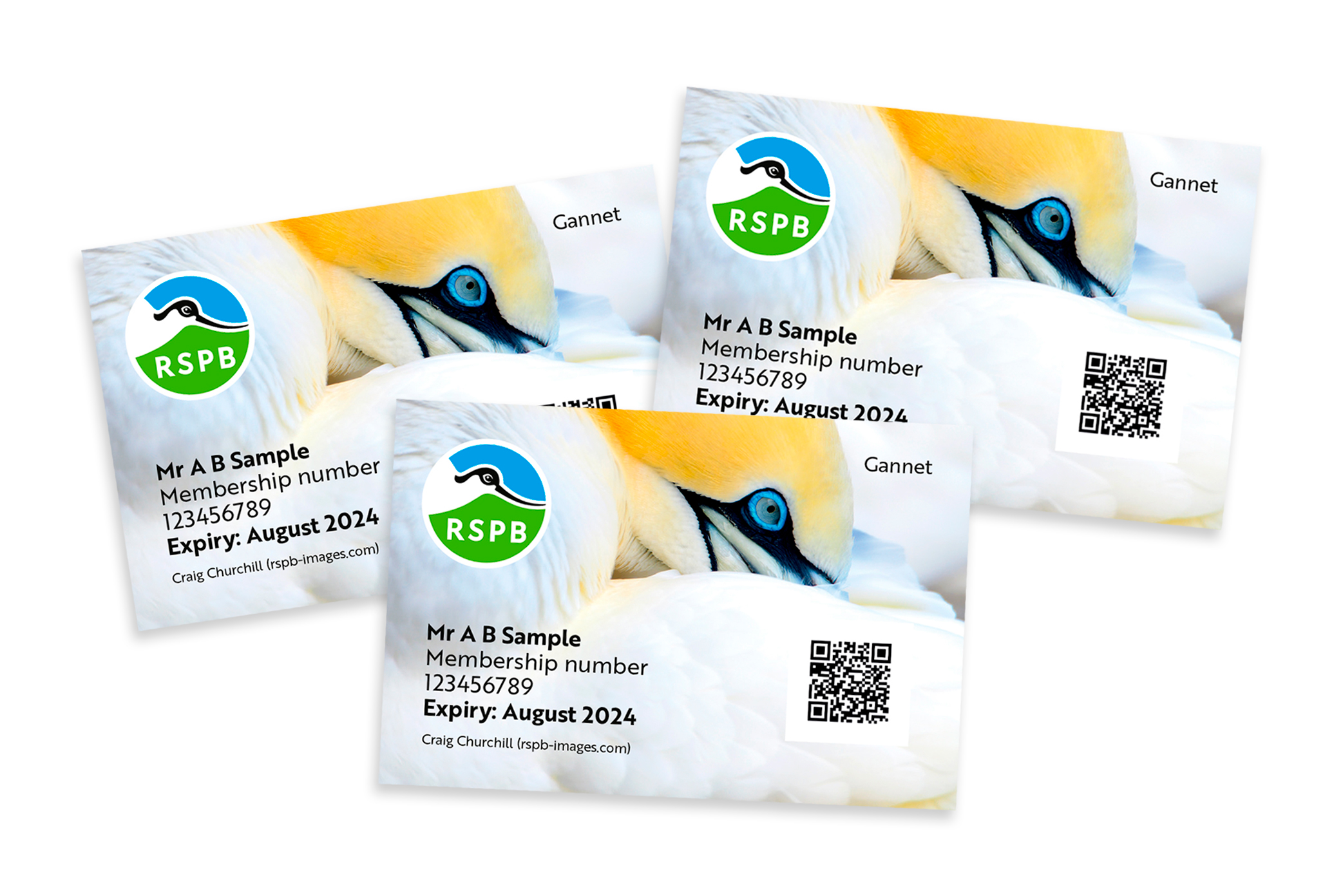
Scannable membership card. Image: RSPB
Privacy policy
Please note that the RSPB’s Privacy Policy has been updated. Read the RSPB’s Privacy Policy.
Protect our Birds, Defend our Nature
The UK’s wonderful birds face growing threats – more than 30 million have been lost since the 1960s.
The RSPB’s new Protect Our Birds, Defend Our Nature campaign aims to raise funds for our work safeguarding these species.
Please donate, and encourage friends and family to support us – find out more about this campaign.
Volunteer army at Coquet Island
Forty wonderful new volunteers have started work at one of our most remote nature reserves: Coquet Island, off the Northumberland coast.
They’ve been busy cutting the grass, installing nest boxes and setting up hides to enable research and benefit the four species of breeding tern, including the UK’s only colony of breeding Roseate Terns.
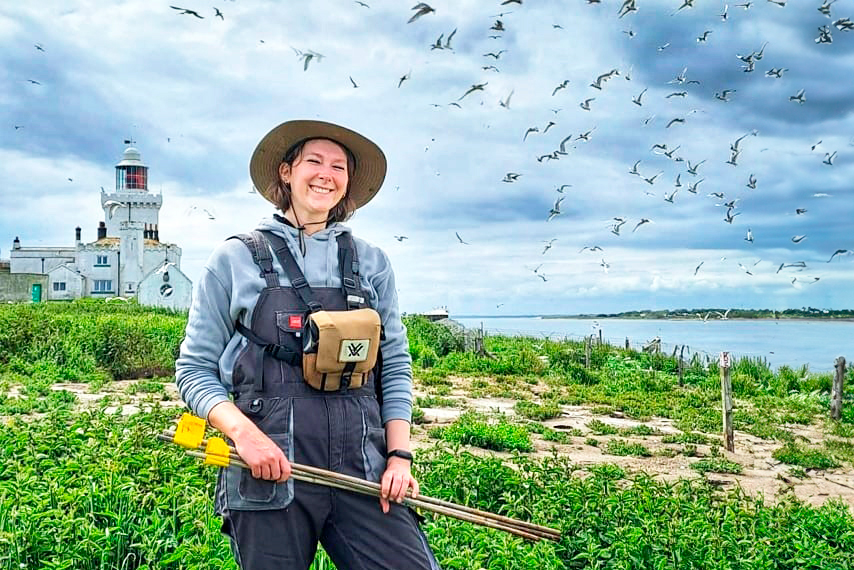
RSPB volunteer Sophie Harris. Photo: Jelaine Gann
Volunteers dig for Rathlin’s Corncrakes
Fifteen years after the Giving Corncrake a Home project launched, this Red-listed bird – which faced extinction in Northern Ireland – is now celebrating the 10-year anniversary of the return of the Corncrake as a breeding species on Rathlin Island, thanks in large part to the efforts of dedicated RSPB volunteers.
Last winter, 39 volunteers spent 343 hours on the mainland digging up nettle rhizomes, or roots, which were then washed and transplanted on Rathlin by wardens Liam and Sean McFaul, creating an additional 230m2 of cover for the returning Corncrakes.
Following this effort, and thanks to support from various communities, farmers and other landowners, the ‘crex crex’ calls of three male Corncrakes were heard on Rathlin this year.
The project is still ongoing – to join in, email corncrakeni@rspb.org.uk
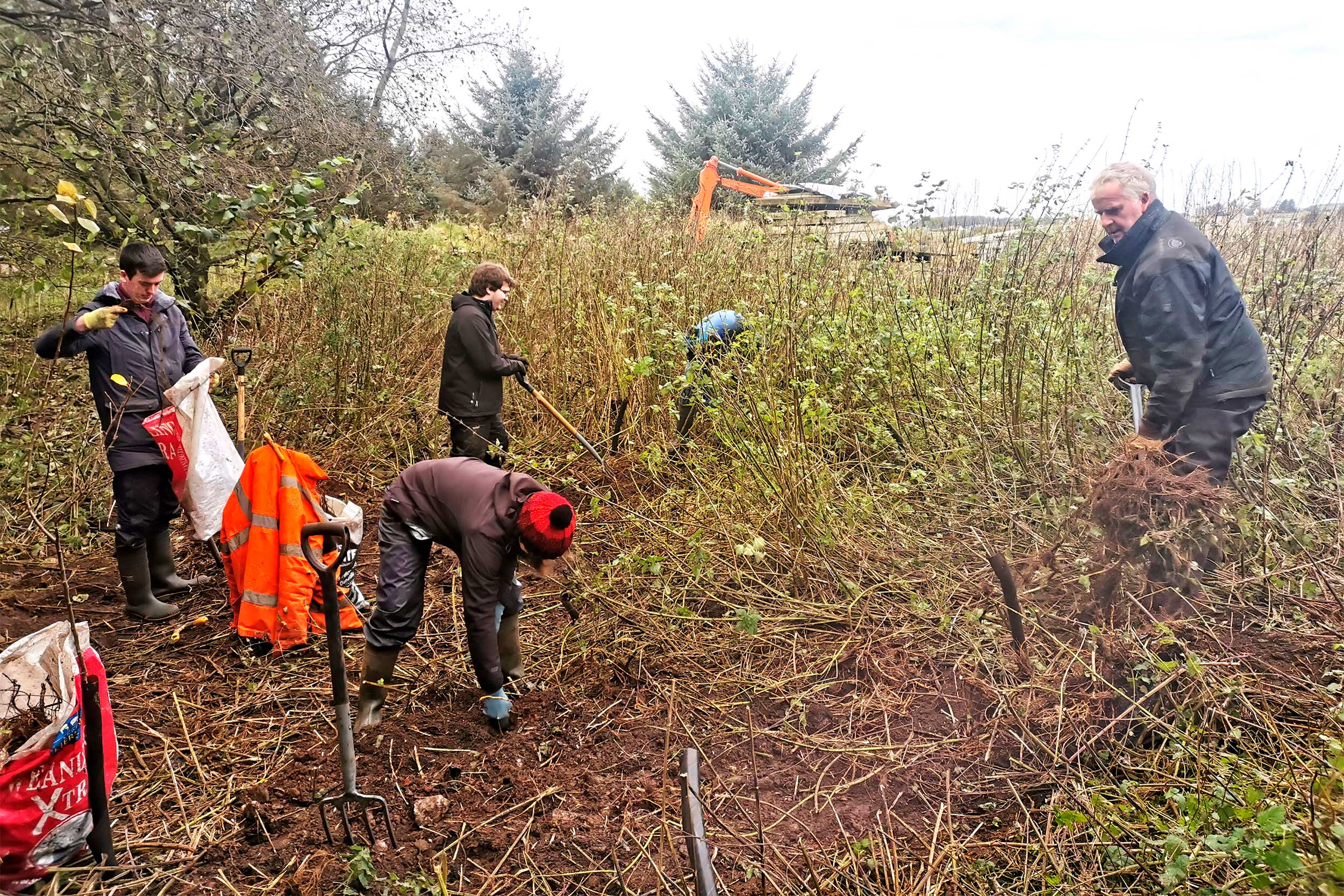
Volunteers at work on Rathlin Island. Photo: RSPB
Natural History Museum discount
Readers enjoy a 20% discount on annual membership at the Natural History Museum until 5 January 2025. Terms and conditions apply.
Wild Haweswater wins top award
A pioneering project in the Lake District – a partnership between the RSPB and landowner United Utilities – has won the prestigious Ashden Award for Natural Climate Solutions, which was announced in June.
This recognises landscape restoration work including the re-wiggling of Swindale Beck, establishing Mardale Mountain Meadow, re-wetting peat bogs and planting tens of thousands of trees.
Find out more about the Wild Haweswater project.
And read about the Water Voles’ return to RSPB Haweswater.

The RSPB’s Annabel Rushton (second from right) accepts the Ashden Award. Photo: RSPB
Restore Nature Now
On 22 June 2024, something truly amazing happened.
Over 60,000 people, representing over 400 organisations, marched through London to demand that those in power Restore Nature Now.
Thank you to the thousands of RSPB members who attended on the day.
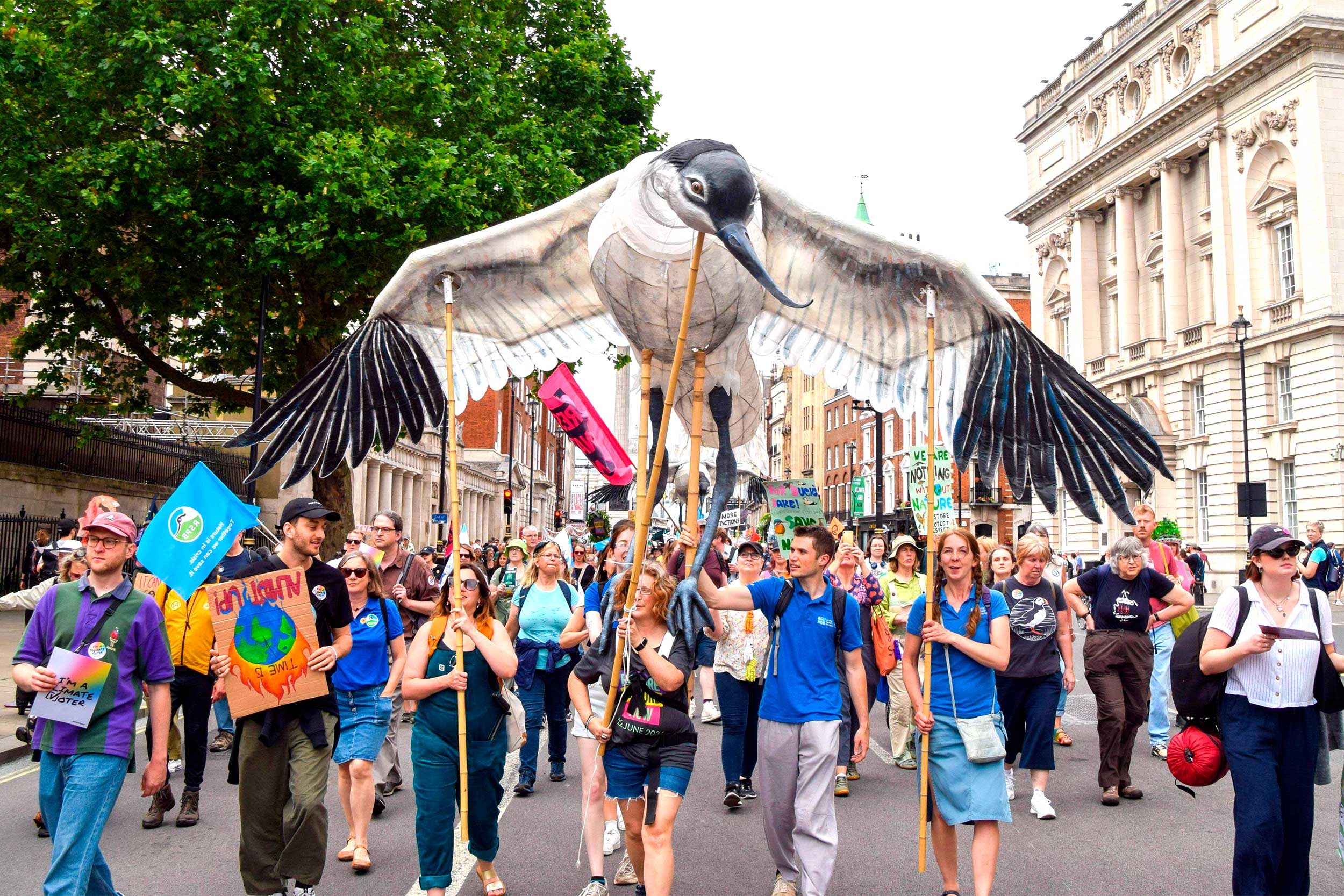
The Restore Nature Now march. Photo: ZUMA Press, Inc. (Alamy Stock Photo)
Dartmoor ponies graze The Lodge
Rare heathland habitat at RSPB The Lodge Nature Reserve is benefiting from a special kind of natural nurturing – from Dartmoor ponies.
Five of these hardy conservation grazers, on loan at the reserve from their owner for the fourth year, will spend a few months munching Brambles and Silver Birch, trampling Bracken and dropping manure.
This contributes to the long-term heathland restoration project launched in 2005 and improves the habitat for bird species such as Woodlark, Nightjar and Dartford Warbler.
Heathland, which is rarer than rainforest and one of the UK’s most threatened habitats, is also a haven for endangered Natterjack Toads, Common Lizards and more.
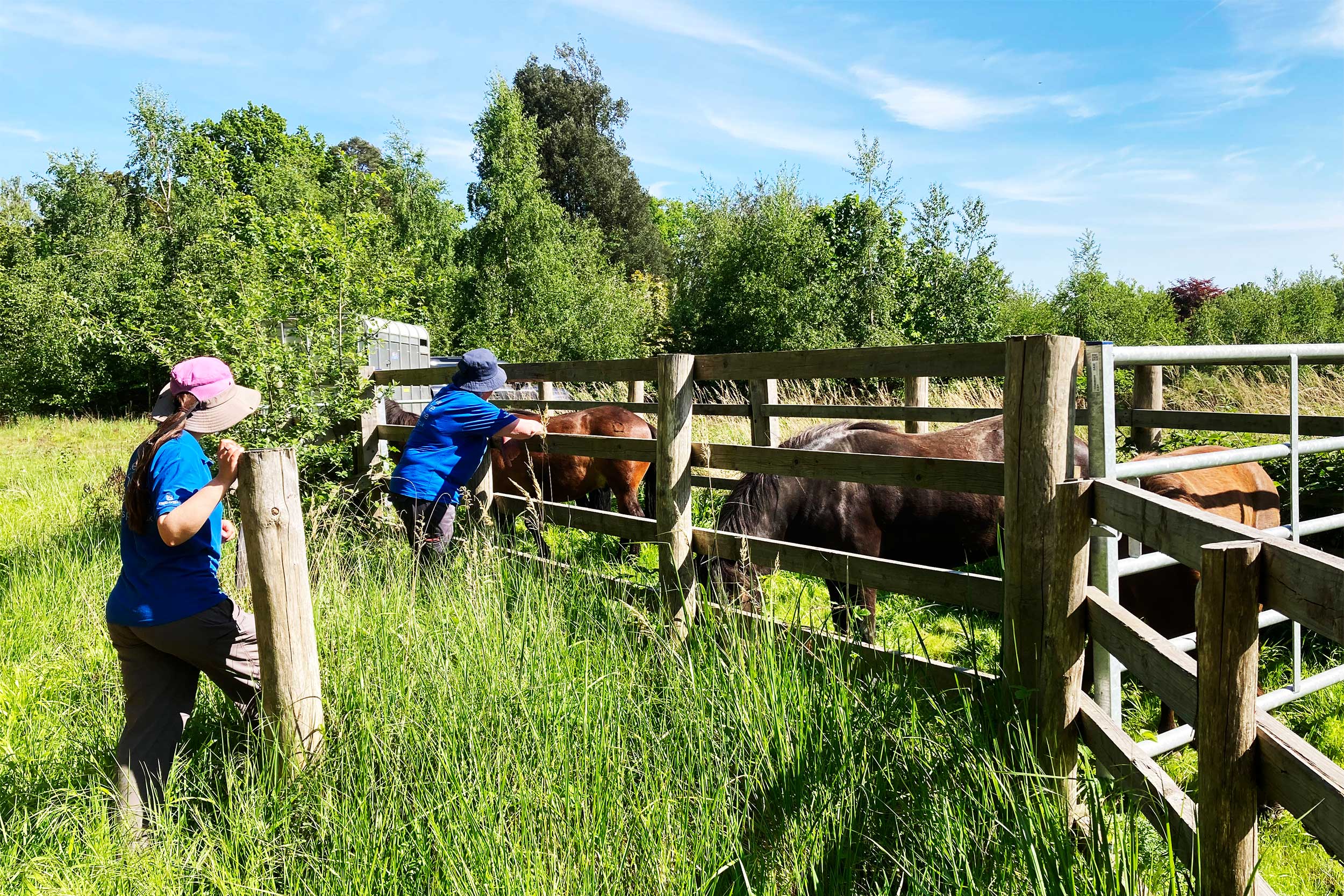
Staff checking on the ponies. Photo: Peter Bradley (RSPB)
Puffin Problem
In regions where Puffin numbers are declining, adults collect more, but smaller, prey items for their chicks than those in successful colonies, according to a new study by RSPB conservation scientists.
This study used data from crowd-sourced photographs taken by ‘citizen scientists’. In 2017, we invited visitors to become the ‘Puffarazzi’ and submit photos of Puffins carrying food for chicks.
Altogether, 602 people submitted 1,402 photos, yielding usable images of 1,198 individual birds carrying 11,150 prey items at 27 colonies across the UK.
Analysis by volunteers showed that the diet of Puffin chicks in regions where severe declines have occurred, notably Shetland, were characterised by a lower prey biomass, higher numbers of fish per load and a high proportion of small, transparent sandeels.
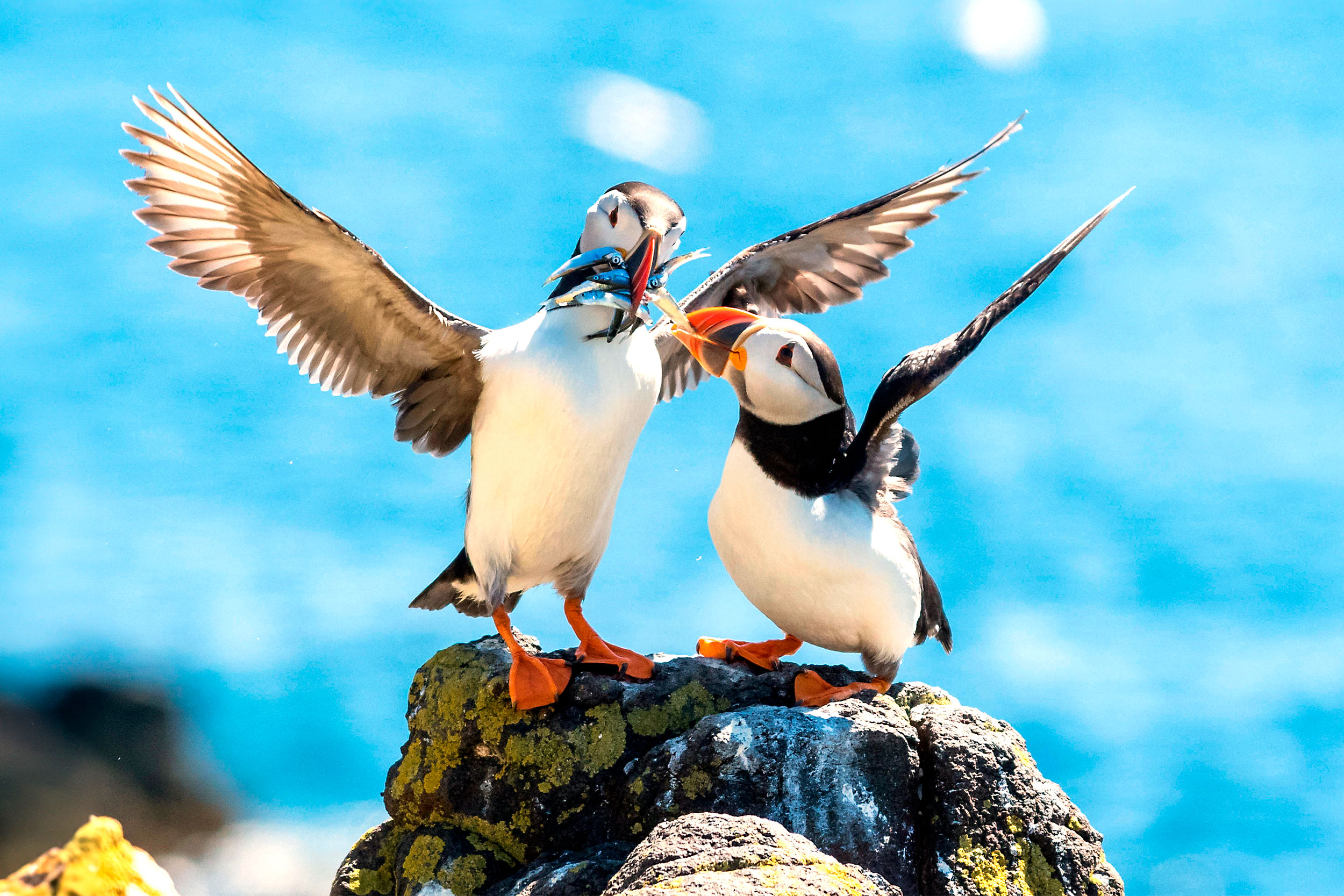
Declining Puffin numbers may be linked to smaller prey. Photo: Kay Roxby (Alamy Stock Photo)
You might also like
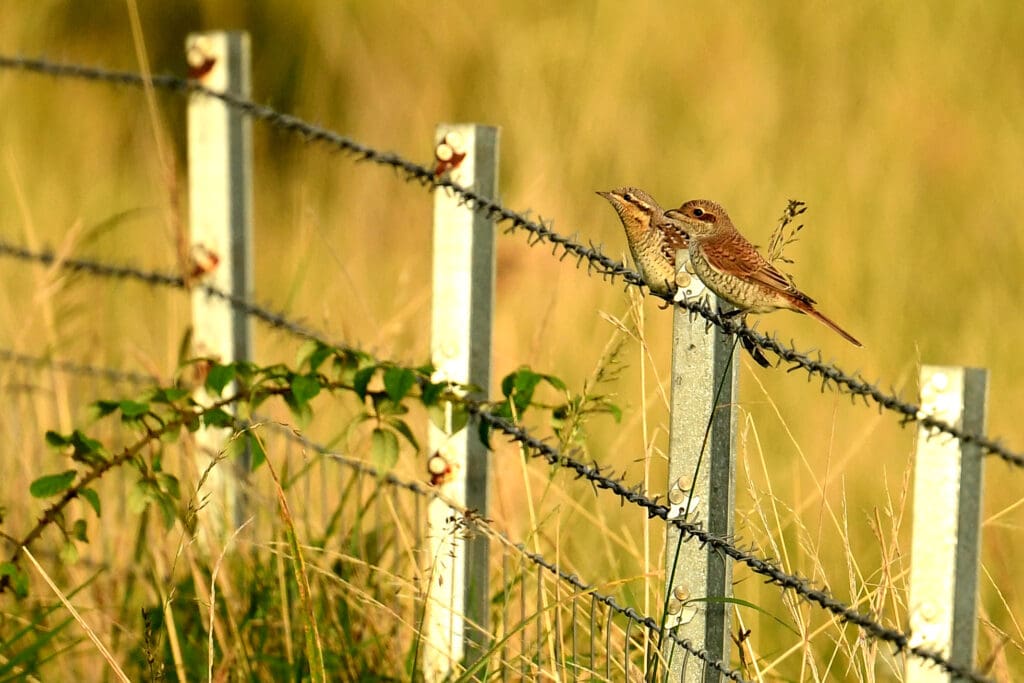
Your say – summer/autumn 2024
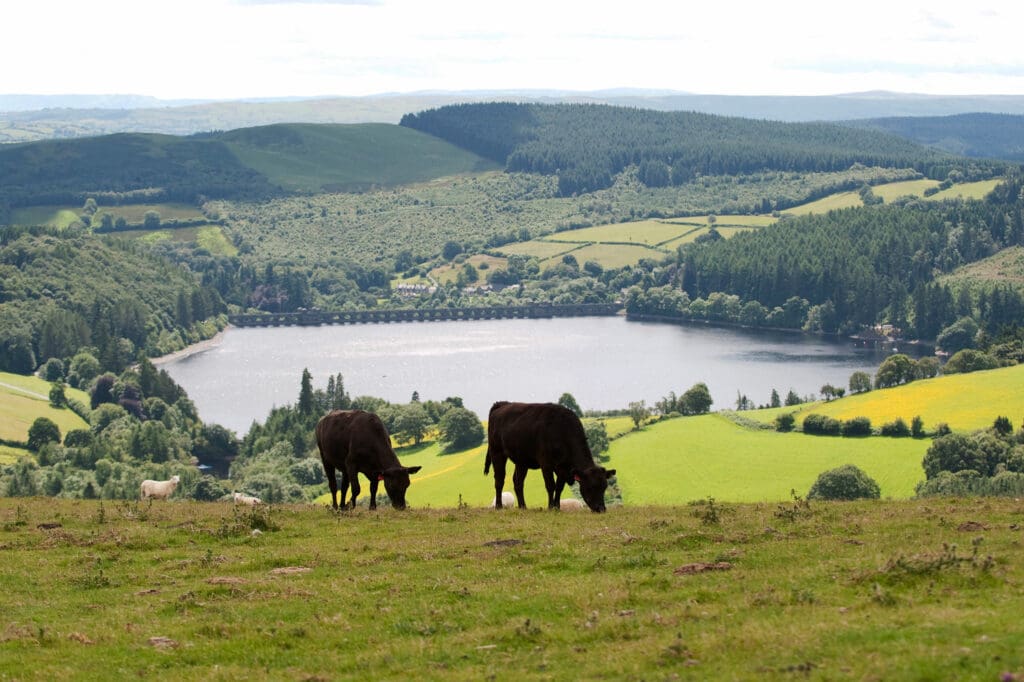
RSPB news roundup (summer/autumn 2024)
